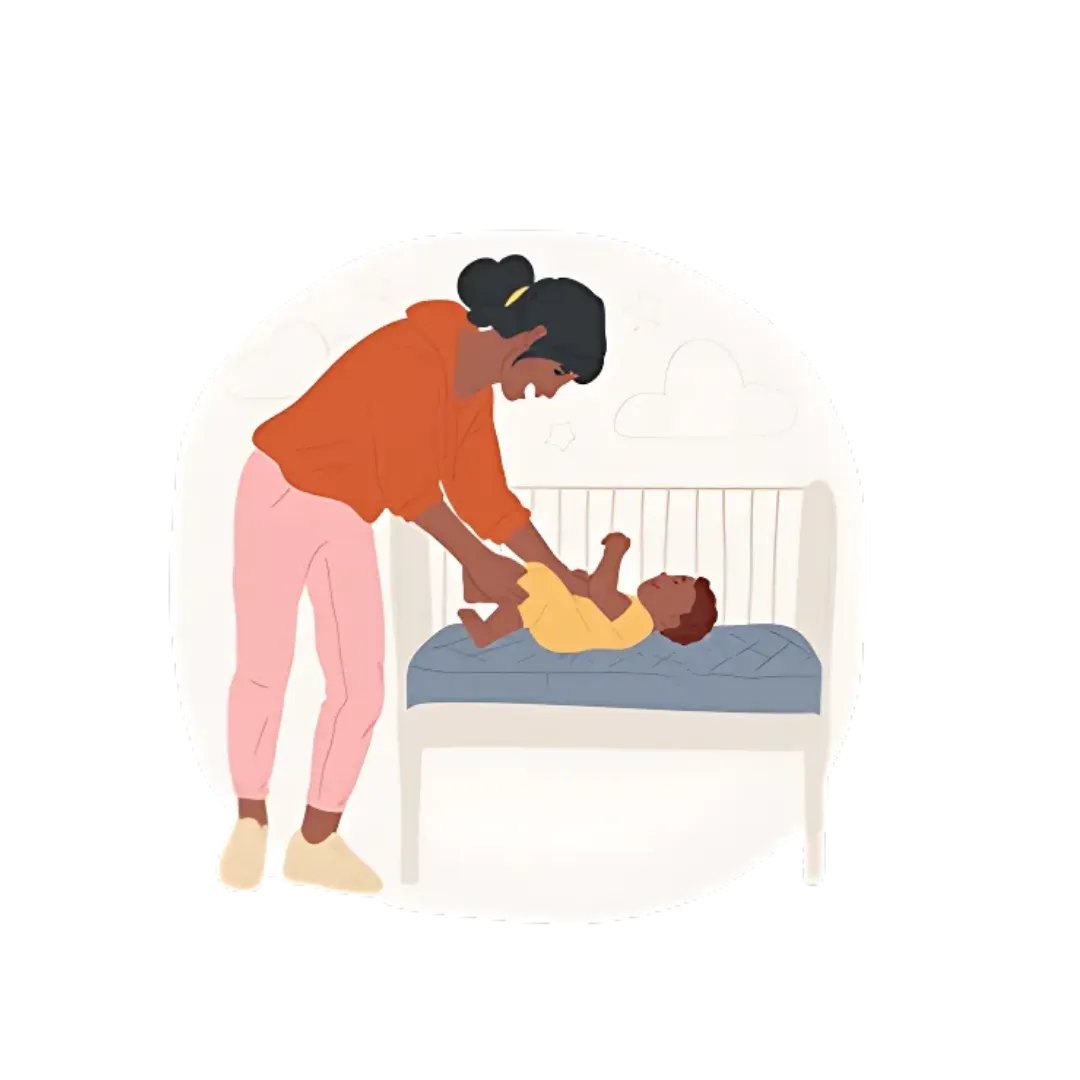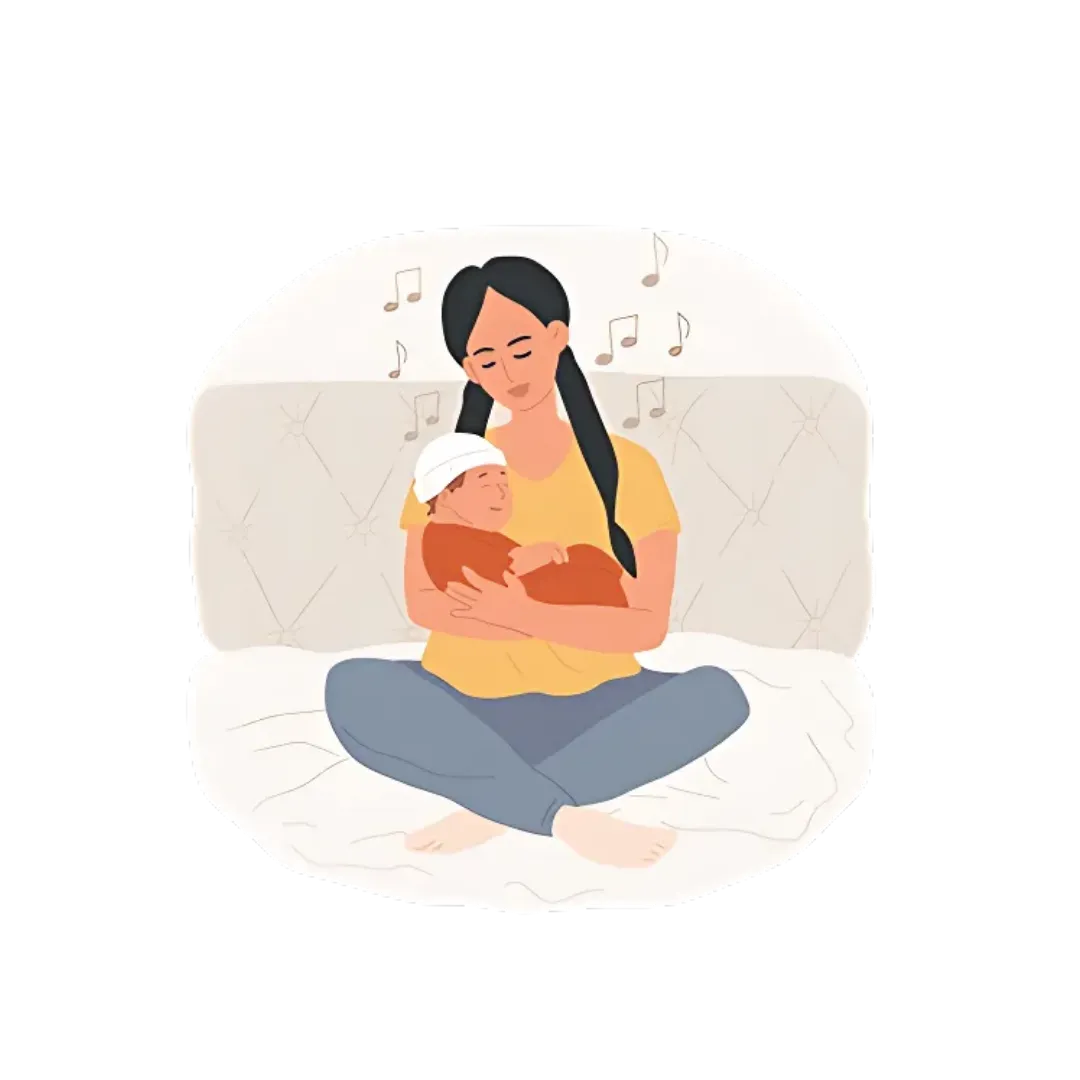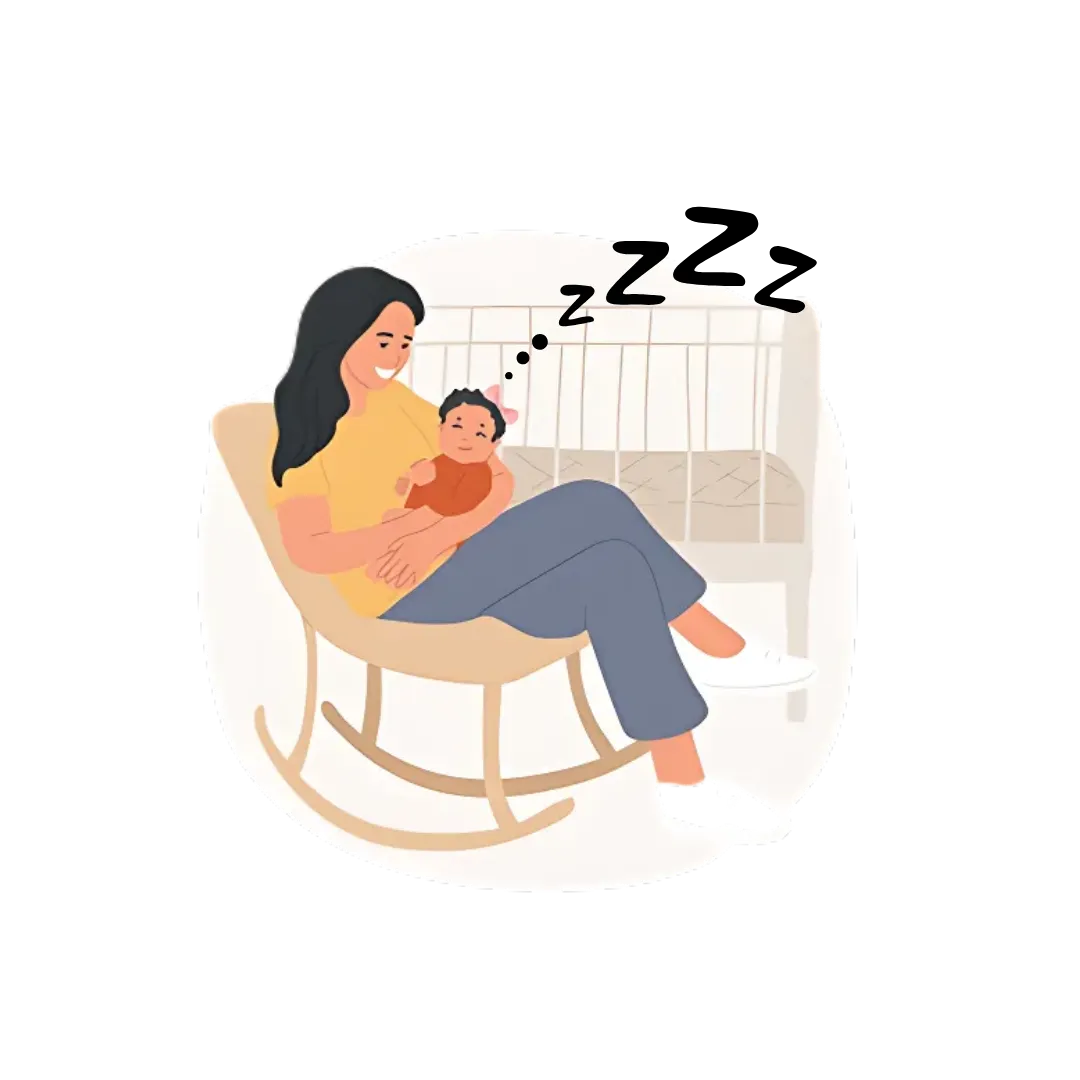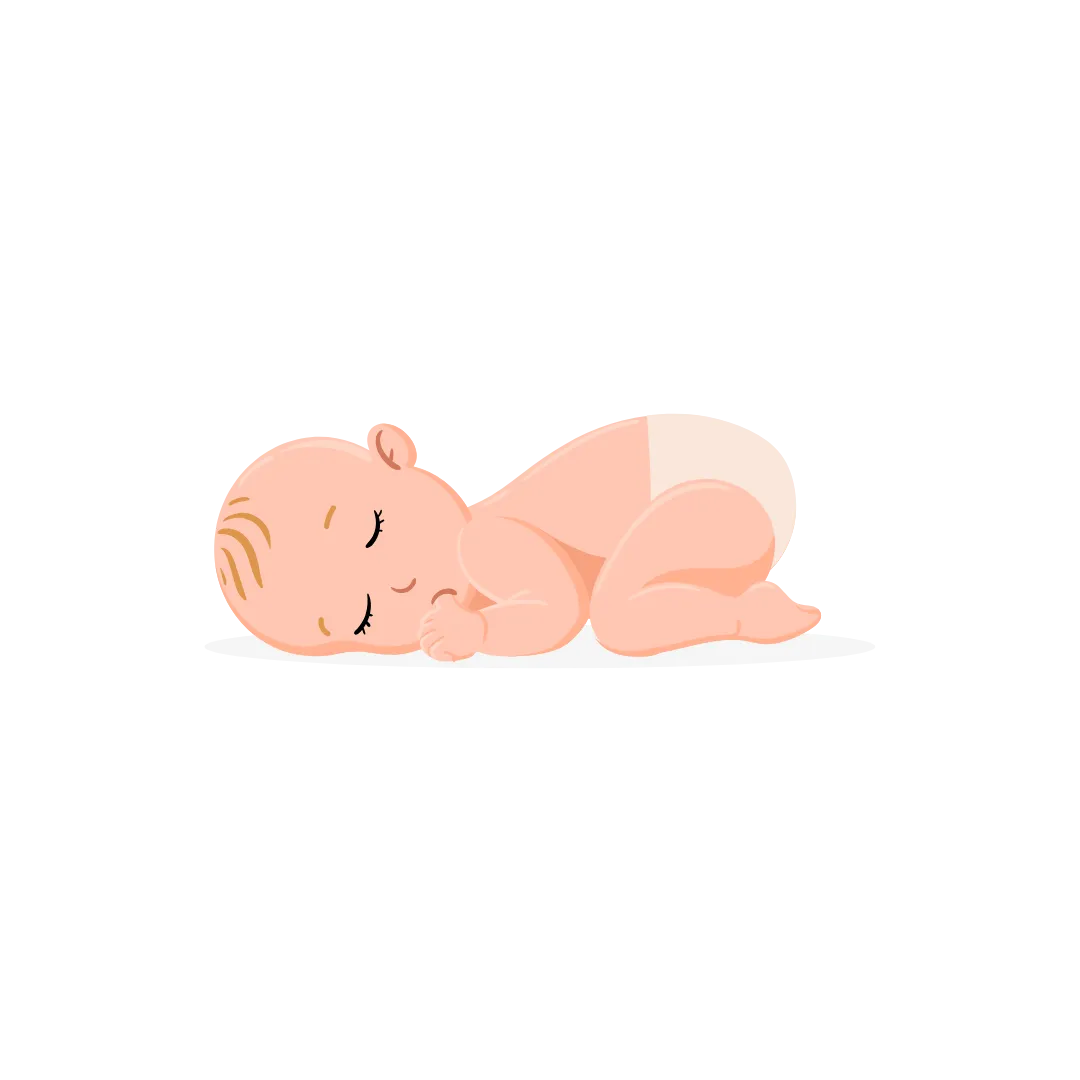
Baby care
What Are Baby Sleeping Patterns?
Baby sleeping patterns refer to the natural sleep cycles that your newborn follows. During the early months, babies sleep in shorter bursts, often waking up every few hours for feeding, comfort, and diaper changes. As they grow, their sleep becomes more consolidated, and their circadian rhythms start to develop.
Understanding your baby’s sleep needs is essential for ensuring they get the right amount of rest at each stage of development. Our expert-led sleeping pattern guidance helps you understand your baby’s natural rhythm and provides strategies to foster better sleep habits for both you and your baby.
Post-partum Care
Benefits of Establishing Healthy Baby Sleeping Patterns
Physical Development
-
 Essential Growth & Healing
Essential Growth & Healing
Sleep is critical for your baby's growth, brain development, and overall physical health. -
 Improved Immune System
Improved Immune System
Adequate rest strengthens your baby's immune system, helping them fight off infections. -
 Energy for Play
Energy for Play
Well-rested babies have more energy for tummy time, motor skill development, and other physical activities.
Mental and Emotional Wellness
-
 Cognitive Growth
Cognitive Growth
Sleep supports brain development, enhancing memory, learning, and cognitive skills. -
 Emotional Balance
Emotional Balance
Consistent sleep patterns help regulate mood and reduce irritability, promoting a calmer baby. -
 Better Bonding
Better Bonding
Proper rest helps your baby feel more secure, allowing for stronger emotional bonds between you and your little one.
Parent Well-being
-
 Restful Nights for Parents
Restful Nights for Parents
By following expert guidance on baby sleep, parents can also enjoy more restful and uninterrupted nights. -
 Reduced Stress
Reduced Stress
When your baby has a consistent sleep pattern, both baby and parent experience less stress and anxiety around sleep. -
 Increased Quality Time
Increased Quality Time
With a balanced sleep routine, you'll have more time to focus on bonding activities with your baby.

Your Journey to Happy Motherhood
Comprehensive Baby Care Package Designed Just for You
Why we are Unique
Why Choose Mathrutvam?

How It's Work
Your Baby Sleep Journey
Week 1-2:
Understanding Newborn Sleep
-
 Frequent Naps & Night Feedings
Frequent Naps & Night Feedings
Newborns sleep for short intervals, typically 2-4 hours at a time. -
 Establishing a Sleep-Friendly Environment
Establishing a Sleep-Friendly Environment
Create a calm, quiet environment that promotes relaxation and sleep. -
 Understanding Sleep Cues
Understanding Sleep Cues
Learn to recognize when your baby is tired and ready to sleep.
Week 3-6:
Sleep Consolidation
-
 Building Sleep Associations
Building Sleep Associations
Start to introduce calming routines (like swaddling, soothing sounds) that help your baby associate activities with sleep. -
 Nighttime Sleep Practices
Nighttime Sleep Practices
Encourage longer nighttime sleep periods by managing feedings and reducing disruptions. -
 Day-Night Cycle Understanding
Day-Night Cycle Understanding
Help your baby adjust to a day-night rhythm for more restful nights.
Week 7-12:
Developing a Consistent Sleep Routine
-
 Creating a Sleep Schedule
Creating a Sleep Schedule
Begin to establish a consistent bedtime routine and naptimes. -
 Improving Sleep Quality
Improving Sleep Quality
Learn techniques to help your baby stay asleep for longer stretches and reduce night awakenings. -
 Handling Sleep Regression
Handling Sleep Regression
Learn how to manage growth spurts and other disruptions to your baby's sleep pattern.
Week 13 and Beyond:
Sleep Independence
-
 Longer Sleep Periods
Longer Sleep Periods
As your baby grows, they will gradually sleep for longer stretches, sometimes up to 6-8 hours at night. -
 Self-Soothing Techniques
Self-Soothing Techniques
Encourage your baby to fall asleep independently using gentle methods. -
 Establishing a Predictable Routine
Establishing a Predictable Routine
Reinforce a consistent bedtime routine that helps your baby feel secure and ready for sleep.
FAQ
frequently asked questions
-
Q. How many hours should my newborn sleep?Newborns sleep around 14-17 hours a day in short cycles. Their sleep gradually becomes more structured over time.
-
Q. Why does my baby wake up so often at night?Frequent waking is normal due to short sleep cycles, hunger, or the need for comfort. Over time, babies learn to sleep for longer stretches.
-
Q. When will my baby sleep through the night?Most babies start sleeping longer at around 3-6 months, but every baby is different. A good bedtime routine can help.
-
Q. How can I help my baby develop better sleep habits?Establish a consistent bedtime routine, keep nights calm and dark, and encourage self-soothing techniques for better sleep patterns.Q. Who is this ideal for?
- Newborns (0-3 months) adjusting to a sleep cycle.
- Parents seeking strategies for improving their baby’s sleep quality.
- Parents wanting to establish consistent sleep routines.
- Babies experiencing sleep disruptions due to growth spurts or teething.
Start Your Baby’s Sleep Journey
A well-rested baby is a happy and healthy baby.
Let us guide you in helping your little one develop healthy sleep habits that will last a lifetime.








